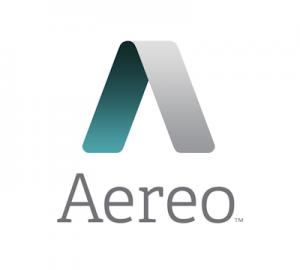15 Technologies That Content Industries Sued After Diamond Rio
Many are familiar with the Sony Betamax case, the landmark Supreme Court decision which nearly 30 years ago ruled that selling videocassette recorders to consumers was not copyright infringement. Not as well known, but equally important, was the case of the Diamond Rio.
Fifteen years after Sony, when the future of the home electronics industry turned on the vote of a single Supreme Court Justice, the recording industry sued to kill MP3 players. In fact, it was exactly 15 years ago today when recording industry lawyers told a federal court that Diamond Multimedia’s Rio, one of the earliest MP3 players, was illegal and needed to be stopped before it found its way into consumers’ hands.
A federal appellate court finally spiked the industry’s campaign against the Rio, which paved the way for a wave of consumer products which ultimately converged into the modern smartphone.
Unfortunately, neither the Sony decision nor the Diamond Rio case ended the century-long trend of new technology being met with copyright litigation. On the 15th anniversary of the Rio suit, here are 15 other products/services that have since met with litigation, and how they have fared:
-
ReplayTV
 ReplayTV, a DVR and time-shifting service, was launched in 1997 and marketed by SONICblue, a successor to Diamond Multimedia. In October 2001, the company was sued by TV industry rights-holders over features including commercial-skipping (which was recently given a stamp of approval by multiple federal courts in the DISH Hopper litigation [1] [2]). Legal costs drove the company into bankruptcy in March 2003. The purchaser of the technology, Digital Networks North America (DNNA), announced in June 2003 that it was removing some of the contentious features, which prompted the entertainment industry plaintiffs to dismiss litigation against ReplayTV and SONICblue. ReplayTV.com’s assets were ultimately acquired by DIRECTV.
ReplayTV, a DVR and time-shifting service, was launched in 1997 and marketed by SONICblue, a successor to Diamond Multimedia. In October 2001, the company was sued by TV industry rights-holders over features including commercial-skipping (which was recently given a stamp of approval by multiple federal courts in the DISH Hopper litigation [1] [2]). Legal costs drove the company into bankruptcy in March 2003. The purchaser of the technology, Digital Networks North America (DNNA), announced in June 2003 that it was removing some of the contentious features, which prompted the entertainment industry plaintiffs to dismiss litigation against ReplayTV and SONICblue. ReplayTV.com’s assets were ultimately acquired by DIRECTV.
-
MP3.com
 MP3.com, founded in 1997, preceded modern cloud-based file storage services. The service aimed to permit users, after buying a CD, to listen to that CD at any Internet-connected location. The recording industry sued MP3.com in January 2000, before the company launched. A court ruled against MP3.com in September 2000, and the company was ordered to pay nearly $118 million in statutory damages for willful infringement. As described in a paper by Prof. Michael Carrier, the company ultimately opted to settle for approximately $50 million. According to an ABC News article, “U.S. District Judge Jed S. Rakoff said it was necessary to send a message to the Internet community to deter copyright infringement.” In 2003, CNET bought the domain name, but not the technology or music assets, and currently maintains the site.
MP3.com, founded in 1997, preceded modern cloud-based file storage services. The service aimed to permit users, after buying a CD, to listen to that CD at any Internet-connected location. The recording industry sued MP3.com in January 2000, before the company launched. A court ruled against MP3.com in September 2000, and the company was ordered to pay nearly $118 million in statutory damages for willful infringement. As described in a paper by Prof. Michael Carrier, the company ultimately opted to settle for approximately $50 million. According to an ABC News article, “U.S. District Judge Jed S. Rakoff said it was necessary to send a message to the Internet community to deter copyright infringement.” In 2003, CNET bought the domain name, but not the technology or music assets, and currently maintains the site.
-
MP3tunes
 In 2005, Michael Robertson, the founder of MP3.com, again attempted to launch a music service – MP3tunes – which operated personal online storage lockers and a music search engine. In November 2007, stemming from disagreements over a takedown notice issued to MP3tunes, EMI filed suit for copyright infringement against MP3tunes and Robertson. In 2011, after four years of litigation, MP3tunes filed for bankruptcy.
In 2005, Michael Robertson, the founder of MP3.com, again attempted to launch a music service – MP3tunes – which operated personal online storage lockers and a music search engine. In November 2007, stemming from disagreements over a takedown notice issued to MP3tunes, EMI filed suit for copyright infringement against MP3tunes and Robertson. In 2011, after four years of litigation, MP3tunes filed for bankruptcy.
-
iCraveTV
 iCraveTV was a Canadian website, which launched in 1999, and offered online streaming of Canadian and American over-the-air TV broadcasts. In February 2000, a U.S. court issued a preliminary injunction against iCraveTV, prohibiting it from operating in the U.S. Before Canadian courts had the opportunity to consider the issues, that same month iCraveTV discontinued operating in return for plaintiffs’ agreement to withdraw all actions against it.
iCraveTV was a Canadian website, which launched in 1999, and offered online streaming of Canadian and American over-the-air TV broadcasts. In February 2000, a U.S. court issued a preliminary injunction against iCraveTV, prohibiting it from operating in the U.S. Before Canadian courts had the opportunity to consider the issues, that same month iCraveTV discontinued operating in return for plaintiffs’ agreement to withdraw all actions against it.
-
ClearPlay
 ClearPlay is a parental control DVD player that allows content filtering, skipping, and muting of DVD films. This feature allowed parents to design a customized filter for each movie, by choosing whether to skip varying degrees of violence, sexual content, and profanity. Movie studios sued ClearPlay for copyright infringement in 2002, alleging that by editing out content, ClearPlay was creating unauthorized derivative works. Before the case was resolved in the courts, Congress intervened and passed the Family Entertainment and Copyright Act (FECA), which immunized ClearPlay’s product from copyright liability. (The narrow nature of FECA was such that it did not immunize another company, CleanFlicks, which re-sold edited copies of movies; a Colorado court ruled against CleanFlicks in 2006.)
ClearPlay is a parental control DVD player that allows content filtering, skipping, and muting of DVD films. This feature allowed parents to design a customized filter for each movie, by choosing whether to skip varying degrees of violence, sexual content, and profanity. Movie studios sued ClearPlay for copyright infringement in 2002, alleging that by editing out content, ClearPlay was creating unauthorized derivative works. Before the case was resolved in the courts, Congress intervened and passed the Family Entertainment and Copyright Act (FECA), which immunized ClearPlay’s product from copyright liability. (The narrow nature of FECA was such that it did not immunize another company, CleanFlicks, which re-sold edited copies of movies; a Colorado court ruled against CleanFlicks in 2006.)
-
Search Engines
Although widely embraced today as a valuable tool for navigating the Internet, at one time search engine indexing was alleged by rights holders to constitute copyright infringement. For example, an adult entertainment magazine and subscription-only website called Perfect 10 sued Amazon, Google, and others for copyright infringement in November 2004 in California district court, for links to allegedly infringing sites, and for “thumbnail”-sized previews of images.
In another case filed the same year, a plaintiff Blake Field sued search provider Google for indexing poems published on his website, seeking $2.5 million dollars. This claim was rejected by a trial court in 2006.
Several months later, however, the trial court ruled in the Perfect 10 case, holding that while hyperlinks to infringing sites were not likely to be found to be infringing, Google’s thumbnail images were likely to be found to be infringing. In May 2007, the Ninth Circuit Court of Appeals overturned this, finding for the defendants on all counts. The court held that Google was not liable for contributory or vicarious infringement, and that the thumbnails were not infringing, as they constituted fair use under a theory of transformativeness, and also failed to demonstrate market harm.
-
Veoh
 Veoh, an Internet television company, debuted its beta service in March 2006 and launched out of beta in February 2007. In June 2006, Veoh was sued in a California district court by IO Group, a producer of adult entertainment films. Veoh prevailed on summary judgment, as it was protected by the DMCA’s safe harbors. In September 2007, UMG Recordings sued Veoh and its investors in a different California district court. In September 2009, a federal court again ruled in favor of Veoh, stating that Veoh was appropriately complying with the DMCA and thus not liable, which the 9th Circuit upheld in December 2011. Years of litigation took their toll, however, and Veoh filed for bankruptcy in February 2010, and its assets are now part of a company called Qlipso.
Veoh, an Internet television company, debuted its beta service in March 2006 and launched out of beta in February 2007. In June 2006, Veoh was sued in a California district court by IO Group, a producer of adult entertainment films. Veoh prevailed on summary judgment, as it was protected by the DMCA’s safe harbors. In September 2007, UMG Recordings sued Veoh and its investors in a different California district court. In September 2009, a federal court again ruled in favor of Veoh, stating that Veoh was appropriately complying with the DMCA and thus not liable, which the 9th Circuit upheld in December 2011. Years of litigation took their toll, however, and Veoh filed for bankruptcy in February 2010, and its assets are now part of a company called Qlipso.
-
Vimeo
 Vimeo, a video-sharing website, was founded in 2004. Last month, a New York federal judge refused to dismiss a copyright case against Vimeo that had been filed in 2009, unconvinced by Vimeo’s argument that it was protected from liability under the DMCA safe harbors. The case is expected to proceed to trial.
Vimeo, a video-sharing website, was founded in 2004. Last month, a New York federal judge refused to dismiss a copyright case against Vimeo that had been filed in 2009, unconvinced by Vimeo’s argument that it was protected from liability under the DMCA safe harbors. The case is expected to proceed to trial.
-
YouTube
 YouTube, a video-sharing website, was created in 2005, and bought by Google in 2006. In March 2007, Viacom and some other rights holders sued YouTube in New York federal court. Google’s motion for summary judgement seeking dismissal was granted in June 2010, as the court found they were shielded under the DMCA safe harbors. In April 2012, the Second Circuit was not entirely convinced that the case did not need to go to trial, and remanded it back to the district court. In April 2013, the district judge again granted summary judgment in favor of YouTube. In July 2013, Viacom again appealed the case back up to the Second Circuit. The litigation is expected to continue into 2014.
YouTube, a video-sharing website, was created in 2005, and bought by Google in 2006. In March 2007, Viacom and some other rights holders sued YouTube in New York federal court. Google’s motion for summary judgement seeking dismissal was granted in June 2010, as the court found they were shielded under the DMCA safe harbors. In April 2012, the Second Circuit was not entirely convinced that the case did not need to go to trial, and remanded it back to the district court. In April 2013, the district judge again granted summary judgment in favor of YouTube. In July 2013, Viacom again appealed the case back up to the Second Circuit. The litigation is expected to continue into 2014.
-
Cablevision
![]() In March 2006, Cablevision announced plans to launch a service that would allow subscribers to record programming on a remote DVR, rather than subscribers needing a set-top DVR in their own home. TV networks sued Cablevision on a theory of direct infringement, rather than alleging secondary liability through the customers’ actions, and in March 2007, the New York district court found that the Cablevision remote DVR would directly infringe plaintiffs’ copyrights. In August 2008, the Second Circuit reversed the district court and found for Cablevision, holding (1) that the copies weren’t sufficiently fixed to be copies under the Copyright Act, (2) that consumers are the ones making records, not Cablevision, and (3) that playing a copy was a private performance, rather than an infringing public performance, since each copy could only be played by the subscriber who recorded it.
In March 2006, Cablevision announced plans to launch a service that would allow subscribers to record programming on a remote DVR, rather than subscribers needing a set-top DVR in their own home. TV networks sued Cablevision on a theory of direct infringement, rather than alleging secondary liability through the customers’ actions, and in March 2007, the New York district court found that the Cablevision remote DVR would directly infringe plaintiffs’ copyrights. In August 2008, the Second Circuit reversed the district court and found for Cablevision, holding (1) that the copies weren’t sufficiently fixed to be copies under the Copyright Act, (2) that consumers are the ones making records, not Cablevision, and (3) that playing a copy was a private performance, rather than an infringing public performance, since each copy could only be played by the subscriber who recorded it.
-
Zediva
 Zediva was a service, launched in March 2011, which allowed customers to virtually rent a DVD which was played on a remote DVD player, and then streamed to the customer online. The film industry sued Zediva, and was granted a preliminary injunction in August 2011 which prevented the service from operating. In October 2011, the MPAA announced a settlement with Zediva, in which Zediva agreed to permanently shutter its service and pay $1.8 million.
Zediva was a service, launched in March 2011, which allowed customers to virtually rent a DVD which was played on a remote DVD player, and then streamed to the customer online. The film industry sued Zediva, and was granted a preliminary injunction in August 2011 which prevented the service from operating. In October 2011, the MPAA announced a settlement with Zediva, in which Zediva agreed to permanently shutter its service and pay $1.8 million.
-
ReDigi
 ReDigi is an online marketplace for pre-owned digital music and also a cloud storage service, that currently only accepts music purchased from iTunes. ReDigi launched in October 2011, and was sued by Capitol Records in January 2012. In February 2012, the court did not grant a permanent injunction against ReDigi, but in March 2013, they partially granted Capitol Records’ summary judgment motion, deferring to Congress on the issue of digital first sale. Rob Pegoraro wrote in April on DisCo how this ruling is “another example of trying to fit a digital case into an analog frame, at the cost of denting some logic along the way.”
ReDigi is an online marketplace for pre-owned digital music and also a cloud storage service, that currently only accepts music purchased from iTunes. ReDigi launched in October 2011, and was sued by Capitol Records in January 2012. In February 2012, the court did not grant a permanent injunction against ReDigi, but in March 2013, they partially granted Capitol Records’ summary judgment motion, deferring to Congress on the issue of digital first sale. Rob Pegoraro wrote in April on DisCo how this ruling is “another example of trying to fit a digital case into an analog frame, at the cost of denting some logic along the way.”
-
DISH Hopper
 The DISH Hopper is a set-top DVR box with several features, including “AutoHop,” the Hopper’s commercial skipping feature. DisCo recently covered the status of ongoing copyright litigation against DISH’s Hopper, which was sued in 2012 in district courts in New York and California, and has prevailed so far against all motions that have been filed to attempt to prevent DISH from offering the service to customers.
The DISH Hopper is a set-top DVR box with several features, including “AutoHop,” the Hopper’s commercial skipping feature. DisCo recently covered the status of ongoing copyright litigation against DISH’s Hopper, which was sued in 2012 in district courts in New York and California, and has prevailed so far against all motions that have been filed to attempt to prevent DISH from offering the service to customers.
-
Aereo
 Aereo is a technology company that allows subscribers to view streams of over-the-air television on computers, tablets, and mobile devices. In September, DisCo covered the status of copyright litigation between television networks and Aereo in New York, where they were sued in March 2012, and Massachusetts, where they were sued in July 2013. (That post also covered ongoing litigation of television networks against another service, called FilmOn X, in California and Washington, D.C.) Just yesterday, Aereo was also sued in Utah.
Aereo is a technology company that allows subscribers to view streams of over-the-air television on computers, tablets, and mobile devices. In September, DisCo covered the status of copyright litigation between television networks and Aereo in New York, where they were sued in March 2012, and Massachusetts, where they were sued in July 2013. (That post also covered ongoing litigation of television networks against another service, called FilmOn X, in California and Washington, D.C.) Just yesterday, Aereo was also sued in Utah.
-
TVEyes
 TVEyes is a media monitoring company and search engine for broadcast TV and radio, whose clients include the Pentagon, the UN, Congress, and the NY Times. The service was sued by Fox News in July 2013 for copyright infringement and misappropriation. In September 2013, TVEyes responded asking the court to dismiss some of the claims.
TVEyes is a media monitoring company and search engine for broadcast TV and radio, whose clients include the Pentagon, the UN, Congress, and the NY Times. The service was sued by Fox News in July 2013 for copyright infringement and misappropriation. In September 2013, TVEyes responded asking the court to dismiss some of the claims.








